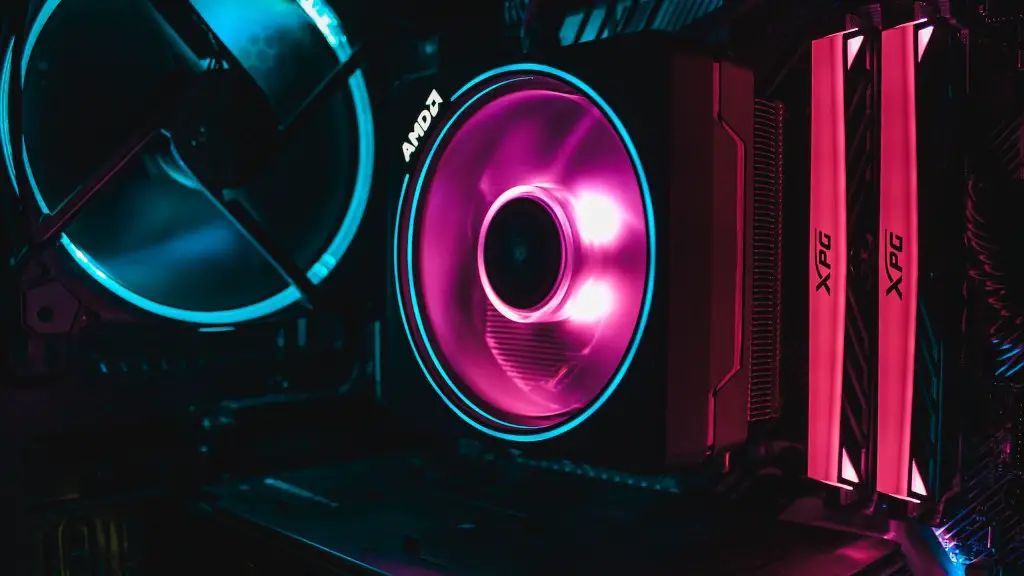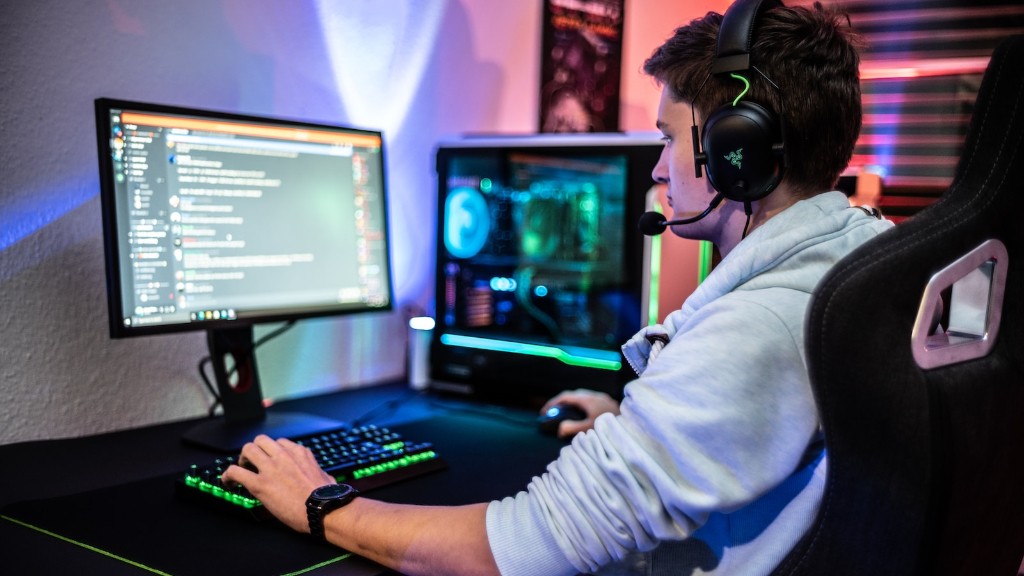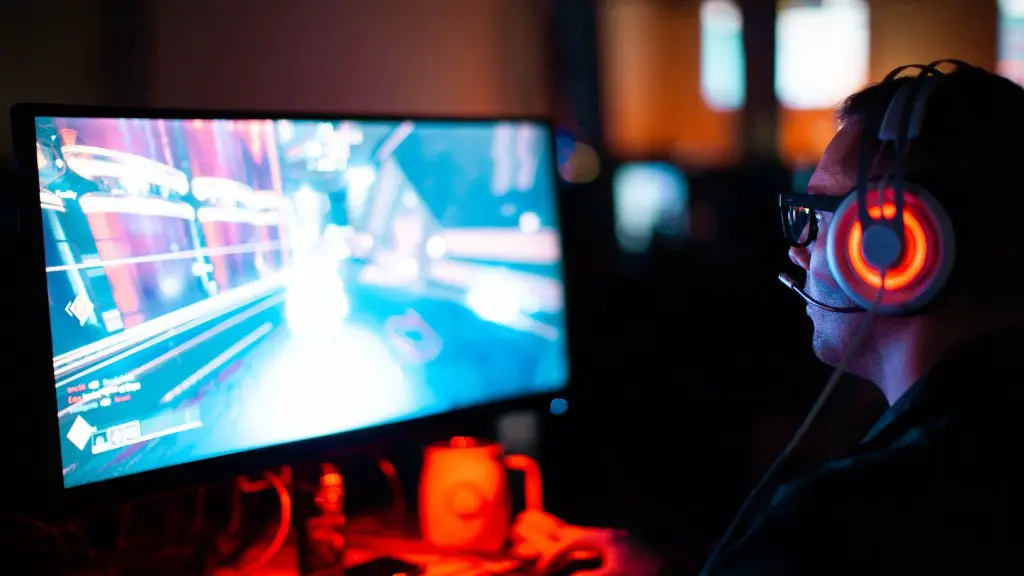Building a gaming computer can be a fun and exciting process. It requires thorough planning, research and a good understanding of the parts needed to build one. The components that need to be included in a gaming PC are the Central Processing Unit (CPU), Motherboard, Random-Access Memory (RAM), Graphics Processing Unit (GPU), Storage, Power Supply Unit (PSU), Casing, and a few peripherals such as a monitor, mouse, and keyboard. Let’s take a closer look at each part.
Central Processing Unit (CPU)
The CPU is the brain of the computer and can be thought of as the computers’ heartbeat, giving it the ability to process data and make decisions based on that data. It is the most essential part of a gaming PC as it serves as its foundation. When choosing your CPU, you want to look for one that is powerful enough to handle the software you’re running and the tasks you’re performing. You should also pay attention to its characteristics such as its clock speed and number of cores, as well as its compatibility with the other parts. CPUs come in different price points, so you should decide on a budget before you start shopping.
Motherboard
The motherboard is the circuit board to which all the other computer components are connected. It is the backbone of the computer and is responsible for providing power, data, and control signals to the components. It also handles the networking and sound capabilities of the gaming PC. When choosing your motherboard, make sure to check its compatibility with the CPU and the other components you’re planning on buying. You’ll also want to consider features like the number of ports and slots. Additionally, consider the type of chipset it has as it affects the performance of the computer.
Random-Access Memory (RAM)
Random-Access Memory (RAM) is what provides the computer with the processing power it needs to run software and games smoothly. RAM comes in different sizes and speeds, so you’ll want to choose the one that suits your needs best. As a standard, you should get at least 8GB of RAM for high-end gaming. You will also want to consider the type of RAM, as newer chipsets may not be compatible with older ones.
Graphics Processing Unit (GPU)
The Graphics Processing Unit (GPU) is responsible for processing the data that is sent to your monitor to render an image or video. Without a GPU, you won’t be able to play games on the highest settings. For gaming PCs, dedicated GPUs are a must, as integrated ones are not powerful enough. When choosing your GPU, consider the size and power as well as the compatibility with your processor and the type of games you’re planning on playing. Brands like NVIDIA and AMD offer good gaming GPUs.
Storage
Storage is what you’ll use to store your games and other software. The amount of storage you need is determined by the types of games you’re playing, as certain games may require more space. For most gaming PCs, a Solid-State Drive (SSD) is preferred as it provides faster read and write speeds than a Hard Disk Drive (HDD). You may want to consider getting both an SSD and an HDD for extra storage.
Power Supply Unit (PSU)
The Power Supply Unit (PSU) is responsible for powering all the components of a gaming PC. The amount of power you’ll need is dependent on the components you’re using and their power requirements. It is important to get a higher wattage power supply than you need in order to avoid underpowering your system. When picking a PSU, look for one with a higher efficiency rating as it will help you save on electricity bills.
Casing
The casing of a gaming computer is its physical structure, and it determines how your PC looks. It is recommended to choose a casing that is large enough to accommodate all your components and future upgrades. Furthermore, check for specific features such as dust filters, cable management, and airflow. Some cases may also come with RGB lighting, providing a more enjoyable experience when gaming.
Monitors, Mice, and Keyboards
To make the best use of a gaming PC, you need to have the right peripherals. Monitors come in various sizes and resolutions, so you can decide which one is best suited for your setup. Mice and keyboards also come in different types; you may want to consider ergonomic ones if you plan on playing for extended periods of time. Wireless versions are also available, offering more convenience and eliminating the hassle of tangled wires.
Performance and Compatibility
When putting together a gaming PC, you must make sure that all the components are compatible with each other and that the overall performance will be satisfactory. Researching the different parts is essential, as is checking the minimum and recommended specifications for the games and software you want to run. Furthermore, make sure to buy all the parts from reputable sources or from the computer’s manufacturer, as cheaper parts may not be as reliable and may cause problems.
Plugging Everything Together
Once you have all the parts, you’re ready to put them together. Depending on the type of computer you’re building, the process can be different and may require special tools. However, by following the instructions that come with the parts, you should be able to assemble the computer without major problems. If you’re feeling uncertain, there are plenty of guides and tutorials online that can help you through the process.
Testing and Troubleshooting
Once the computer is all set up, you’ll want to test that it works as expected. This involves checking the power and testing the peripherals as well as the software. If you encounter any problems during the process, you will want to consult the documentation that came with the parts or search online for solutions. It is also important to know how to troubleshoot, as this can often save you time and money.
Maintenance and Upgrades
To keep your gaming PC running smoothly, you’ll want to periodically check for hardware or software updates, as well as keep track of your hardware’s temperature. Additionally, you’ll want to upgrade your hardware whenever you feel the need to, in order to keep up with the latest gaming trends. It is also important to regularly clean the inside of the computer and outside, including the vents and fans, to avoid overheating and system damage.


